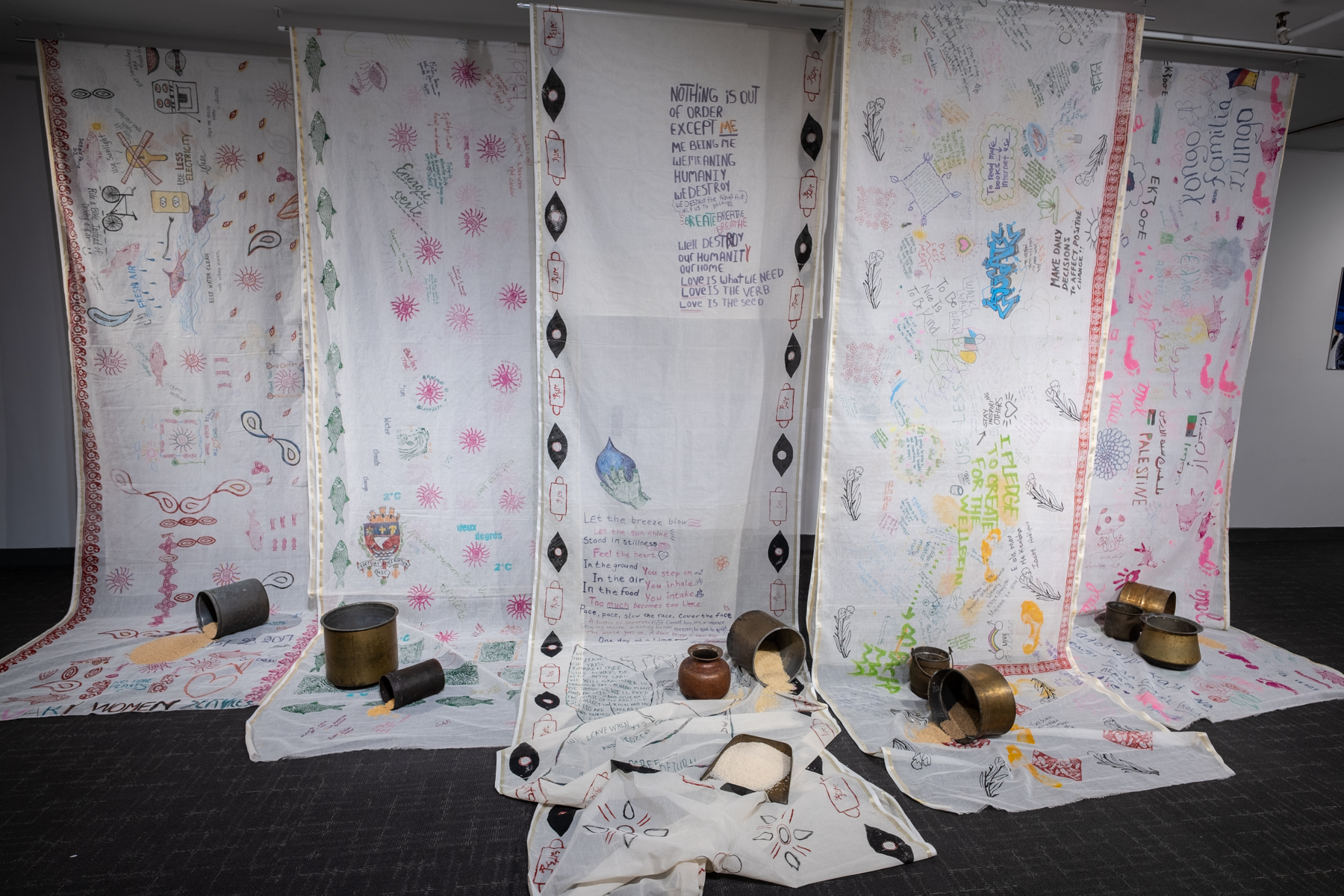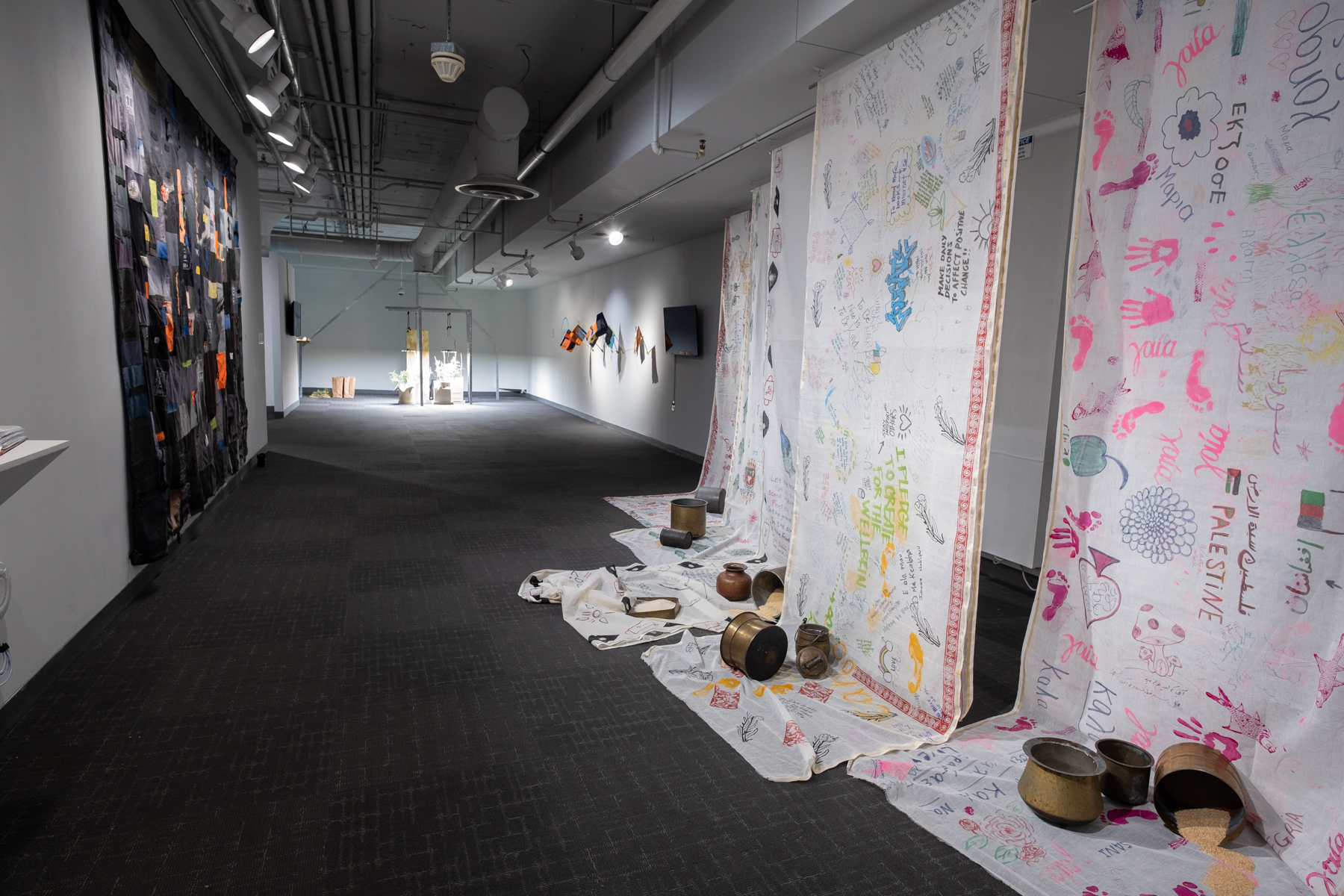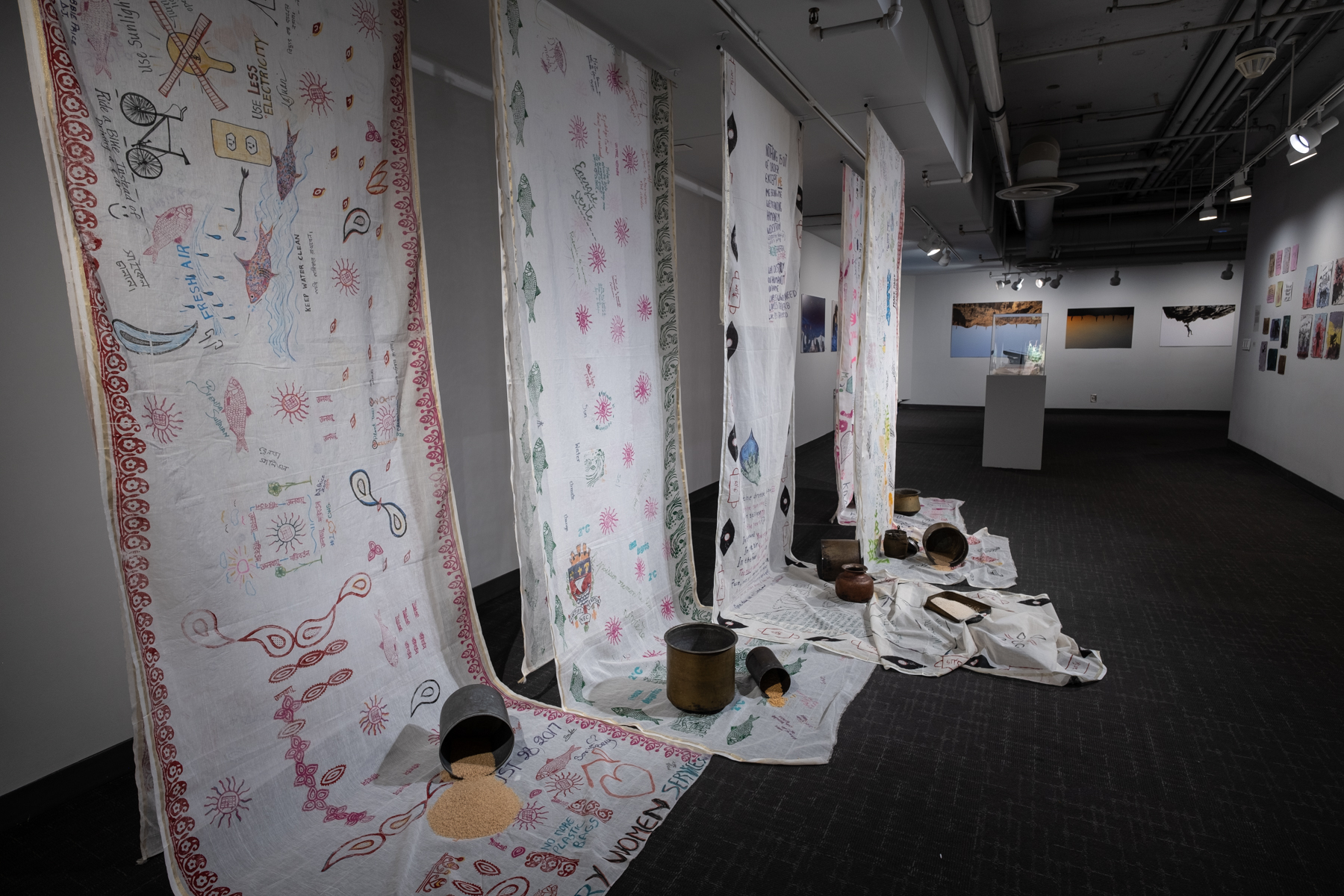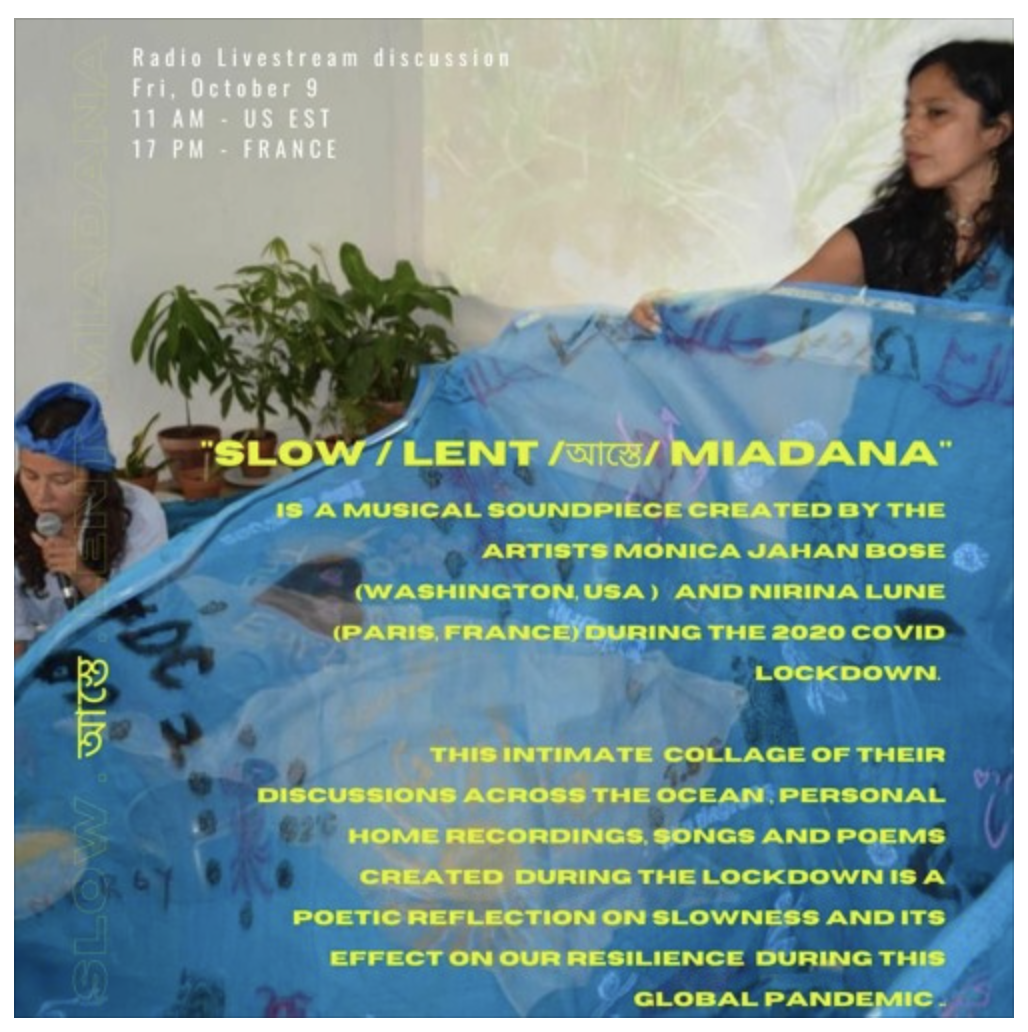Monica Jahan Bose
United States of America + Bangladesh




Monica Jahan Bose
Shift, 2021
Woodblock and painting on handwoven-cotton saris, rice, dal, brass vessels
Approximately 10' x 12' x 6'
Shift, 2021
Woodblock and painting on handwoven-cotton saris, rice, dal, brass vessels
Approximately 10' x 12' x 6'
Shift is an installation that explores the idea of shifting our lifestyles in response to the climate crisis. The 18-foot-long cotton saris are handwoven Bangladeshi pre-colonial garments covered in woodblock prints and drawings and writings by Bose, Bangladeshi women, and people in Europe and the United States. The pandemic, by slowing us down, has highlighted the environmental impacts of our “normal” hectic life of overconsumption, commuting, and travel, leading to the heating of our planet, disruption of agriculture, and food insecurity.
Through her ongoing project Storytelling with Saris (started in 2012), Monica Jahan Bose collaborates with a dozen women farmers from her ancestral island village in Bangladesh, as well as with artists and non-artists in North America and Europe. Monica’s multilingual text-based work seeks to create an expansive ecofeminist decolonized language of contemporary art that develops community and action around the intersection of climate, gender, and racial justice. Her work spans installation, performance, film, and public art and has been exhibited extensively, including recent solo shows at the Bangladesh National Museum and the MACRO Museum of Contemporary Art in Rome.
During the pandemic, Bose was unable to travel to France to collaborate with musician Nirina Lune on a performance. Instead they communicated via the internet to create a sound piece called Slow. The piece includes vocals by both artists in multiple languages, along with sounds of Covid life captured in and around Washington, D.C., and Paris.
Monica Jahan Bose and Nirina Lune
Slow/Lent/আস্তে/Miadana, 2021
Audio, 7:25 minutes
Through her ongoing project Storytelling with Saris (started in 2012), Monica Jahan Bose collaborates with a dozen women farmers from her ancestral island village in Bangladesh, as well as with artists and non-artists in North America and Europe. Monica’s multilingual text-based work seeks to create an expansive ecofeminist decolonized language of contemporary art that develops community and action around the intersection of climate, gender, and racial justice. Her work spans installation, performance, film, and public art and has been exhibited extensively, including recent solo shows at the Bangladesh National Museum and the MACRO Museum of Contemporary Art in Rome.
During the pandemic, Bose was unable to travel to France to collaborate with musician Nirina Lune on a performance. Instead they communicated via the internet to create a sound piece called Slow. The piece includes vocals by both artists in multiple languages, along with sounds of Covid life captured in and around Washington, D.C., and Paris.
Monica Jahan Bose and Nirina Lune
Slow/Lent/আস্তে/Miadana, 2021
Audio, 7:25 minutes
Monica Jahan Bose and Robin Bell
Warming Waters, 2021
single channel video
10:40 minutes
Warming Waters documents a public art project led by Monica Jahan Bose that connects women from her ancestral village in Bangladesh to the people of Washington, D.C. on the issue of climate justice, and the warming and rising waters around the world. Bose works with the public to co-create 22 blue and white woodblock-printed saris with climate themes, which are installed on the Georgetown canal wall in Washington, D.C. The saris are also used in performances in Katakhali Village, Bangladesh and the Bay of Bengal. On top of the blue and white sari installation, artist and filmmaker Robin Bell projects images of the public working on the saris, along with footage from Bangladesh, Bose's woodblock drawings, and pages from the Bangladeshi women's climate journals. The project creates a cross-border community linking Black and Brown communities in solidarity.
about the artist

Monica Jahan Bose is a Bangladeshi-American artist and climate activist whose work spans painting, printmaking, film, performance, and public art. Her socially engaged work highlights the intersection of climate, racial, gender, and economic injustice through co-created workshops, art actions, and temporary public art installations and performances. She is the creator of Storytelling with Saris (launched in 2012), a long-term art and advocacy project with her ancestral village of Katakhali, Bangladesh. Her work has appeared in the Miami Herald, The Washington Post, Art Asia Pacific, the Milwaukee Journal Sentinel, the Honolulu Star Advertiser, the Japan Times, and all major newspapers in Bangladesh. She has a BA in the Practice of Art (Painting) from Wesleyan University; a post-graduate Diploma in Art from Santiniketan, India; and a JD from Columbia Law School.
monicajahanbose.com
interview
